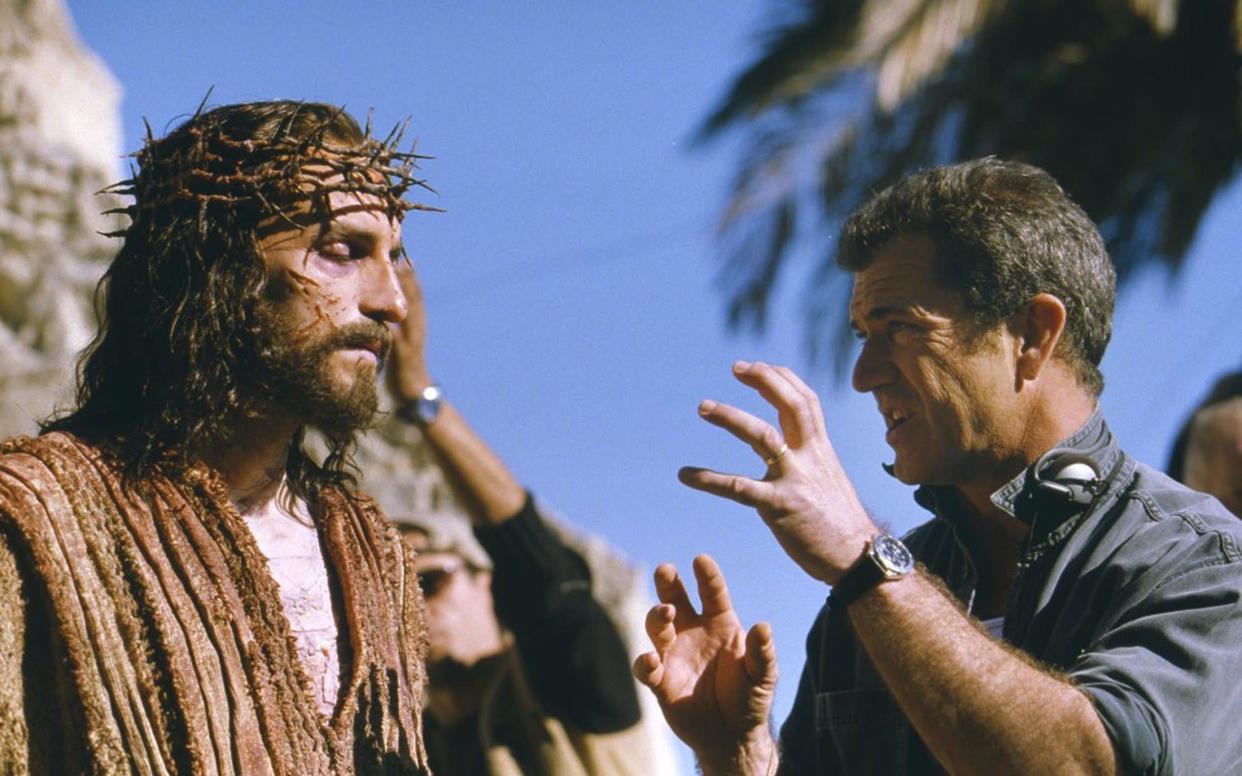Ignore the critics – Kevin Costner’s three-hour western is a must-watch

Good news! Remember the film everyone keeps begging Hollywood to make? The one that returns to old-fashioned values of layered storytelling and real-world spectacle? Created by a seasoned, impassioned artist rather than a soulless business model?
That goes out of its way to cater to the older audiences typically not that well-served outside of awards season? And in which voguish political agendas are nowhere to be found? That film? Well, someone has finally made it. And the industry is convinced it’s going to flop.
Kevin Costner’s über-traditional western epic Horizon: An American Saga canters into cinemas this Friday, following a much-memed premiere last month at Cannes. (It received a seven-minute standing ovation, during which the stoic face of its director and star grew streaked with manly tears.) The film is its director-star’s first foray behind the camera in 21 years – and by all accounts, he was prompted by the success of the contemporary western streaming series Yellowstone, in which he starred until recently, and which in the United States draws more than 12 million regular viewers.
Unfortunately, though, that audience doesn’t yet appear to have bought many tickets. According to the latest figures, Horizon is likely to take around $10 million at the US box office on its opening weekend: around a fifth of Bad Boys: Ride or Die’s opening a few weeks ago, and two thirds of the gen-Z love triangle tennis drama Challengers. Here in Britain, where westerns are relatively niche, that suggests it is likely to open on the wrong side of the talismanic £1m mark.
For Costner and Warner Bros, this will be concerning, since Horizon’s full title concludes with the words ‘part’ and ‘one’. A second instalment, already complete, is coming to cinemas in mid-August, while a third (of a proposed four) is currently filming in Utah.
For a happy spell in the noughties, this sort of multi-part pop-auteur splurge threatened to become the next big thing, with Quentin Tarantino’s Kill Bills Vol 1 and 2 and the Wachowskis’ Matrix sequels appearing at six month intervals. Alas, the practice was subsumed in the business’s pivot to franchises – giving us The Twilight Saga: Breaking Dawn Parts 1 and 2, et cetera – with only rare cases still occasionally pushing through, such as last year’s swashbuckling French-language Three Musketeers adaptions, and Rebel Moon, Zack Snyder’s wan fantasy diptych for Netflix.
The reason? Studios are less willing than ever to underwrite big swings, as Costner found to his literal cost. He sunk $38 million of his own money into Horizon, and scared up the rest of its $100 million-plus budget from private investors. That means if it bombs, a lot of spreadsheety types will look back at Hollywood’s recent creatively conservative swerve and think to themselves: phew, smart move.

Look also at the fate of Richard Linklater’s Hit Man, a sexy comic thriller starring heartthrob-of-the-moment Glen Powell, and in no possible sense a cryptic or challenging film. No studio funded it – nor were they moved to buy the distribution rights, even after its buzzy premiere at Venice. In the end, it was nabbed by Netflix, on whose service it debuted earlier this month.
“Every one of [the studios] said, ‘Yeah, not for us,’” Linklater recently said. “Glen and I wrote this on our own; no one hired us. The industry didn’t want to make this film.”
Yet in these tough times for passion projects, the pressures are not merely financial. Costner’s Horizon may not have magnetised studio funding, but it also failed to attract much critical support. Your writer, who greatly enjoyed its rheumy-eyed grandeur, found himself in a conspicuous minority when the Cannes reviews dropped – as he did a few days earlier when the extremely mixed verdicts were delivered on Megalopolis, Francis Ford Coppola’s (also self-funded) eccentric urban sci-fi objet.
Critics should of course be aware of their own biases and kinks, and I admit I tend to grade high for big swings. They’re a sort of spectacle-in-the-abstract that I find irresistible, regardless of whether they fully pay off: I’d far rather leave the cinema thinking ‘hang on, they did what?’ than ‘well, wasn’t that nice’.

Not that ambition is all Horizon has going for it. The western has been endlessly revised and subverted over the years, but this is Costner hauling it back to its romantic first principles, and I’d urge readers to give it a shot. Set during the American Civil War, it’s a meandering multi-strand story of a nation’s grassroots beginnings, with a sizeable troupe of western ‘types’, from Costner’s principled lone gunslinger to Abbey Lee’s heart-of-gold hooker, all scratching around for their place on the unsettled land.
It’s the sort of film in which a great character actor like Danny Huston can pop up in a couple of scenes as a wise Union colonel, do his wise-Union-colonel thing, and leave everyone satisfied. But the nature (and indeed size) of the canvas allows room for work of real feeling and substance too: Sienna Miller, as the redoubtable widow Frances Kittredge, gives her best and richest performance in years.
Horizon’s ambling pace and classical perspective were both sticking points at Cannes – especially when an Apache raid on Frances’s township is portrayed as a straightforwardly savage attack, without any of the anti-colonial karmic rib-prodding you might expect in 2024. The film’s Native American characters are written and played with as much depth as its white ones, but its lack of overt moral signposting here did feel like an intentional bucking by Costner and his co-writer Jon Baird of current Hollywood mores.
These sorts of choices should intrigue us. But for a younger generation of critics and cinema-goers, who are used to having films’ messages spelled out for them, and drawn from an approved list, they can be reason enough to write them off.

Look at the confusion caused earlier this year by Alex Garland’s Civil War, the action thriller in which American society collapsed under its own political divisions, which coolly refused to spoon-feed the viewer with an easily digestible moral, or let the left (of which I’m sure Garland considers himself a member) off the hook.
But this isn’t new. From It’s a Wonderful Life to Heaven’s Gate, Fight Club to Marie Antoinette, cinema is littered with utterly singular works, backed by a studio but propelled by a lone artistic vision, that were met with critical chippiness and/or commercial indifference.
Despite breaking every studio rule going, others have thrived. Mel Gibson’s The Passion of the Christ was a religious blockbuster in Aramaic: no studio would have made it had it not been for its director’s own convictions. Yet it took more than half a billion, and aside from some recent Chinese domestic-only megahits remains the most popular non-English-language film ever made.
Even the original Star Wars – a film which, in retrospect, should have been the quickest take-all-the-money-you-need deal in Hollywood history – was made with $400,000 of its creator George Lucas’s own funds. Twentieth Century Fox’ reluctance to cover the full budget turned Lucas’s investment into a $4 billion fortune, plus creative control over the franchise for the next 40 years.
Others still didn’t thrive at all, but cinema is all the richer for their existence. Martin Scorsese’s own Catholic epic, 2016’s Silence, had the opposite trajectory to Gibson’s: critical acclaim, then sank without a trace. Then there was Terry Gilliam’s The Man Who Killed Don Quixote: middling reviews, few people saw it, but the crazed 29-year story of its making is one of cinema’s great meta-myths.

Whether failed or triumphant, passion projects give cinema character. You don’t have to love all of the movies above, or indeed any of them, to recognise the medium is better off for their existence.
That makes the recent turn against them troubling. Pop music went through a similar crisis 10 years ago – in which consumer taste, seemingly narrowing by the hour, became the lone barometer for what did and didn’t merit major label support. In an interview at Coachella in 2012, Noel Gallagher memorably sounded the alarm.
“The consumer didn’t f___ing want Jimi Hendrix,” the Oasis guitarist explained, “but they got him, and it changed the world. And the consumer didn’t want Sgt Pepper, but they got it. And they didn’t want the Sex Pistols, but they got it.
“F___ the customer. The customer doesn’t know what he wants. You f___ing give it to him. And he likes it.”
Hollywood take note. On the surface, Costner’s film might be a misty-eyed throwback, but it’s just the sort of thing that drives cinema forward.
Horizon: An American Saga is in cinemas from June 28


